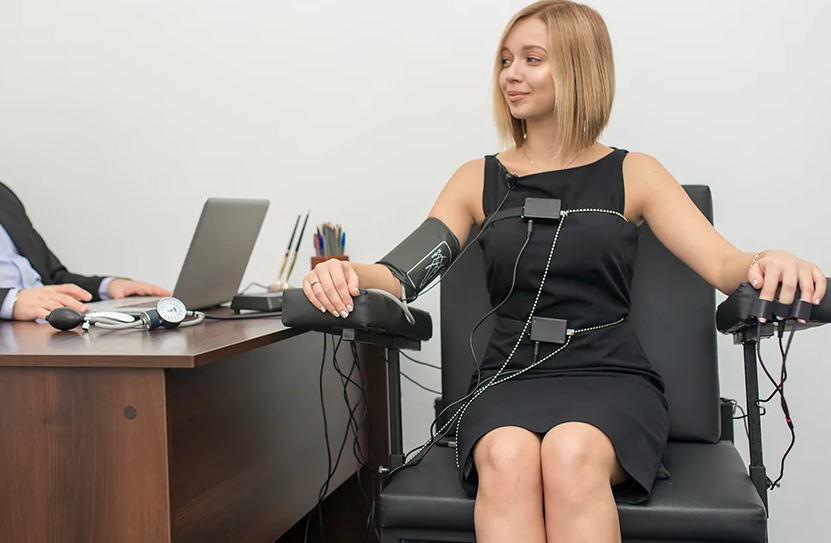Lie Detector Testing in Alabama: The Truth Behind Polygraph Use and Limitations
Polygraph tests, commonly known as lie detector tests, have long been a tool used to assess truthfulness by measuring physiological responses such as blood pressure, heart rate, respiration, and skin conductivity. These tests are based on the idea that when a person is being deceptive, their body experiences stress that can be detected through subtle changes in these indicators. Alabama polygraph tests are frequently used in law enforcement investigations and pre-employment screenings for positions in public safety and government sectors. While they remain a valuable investigative resource, their reliability and legal admissibility are often subjects of debate. Understanding how lie detector tests are used and regulated in Alabama is essential for individuals facing one, as well as for those curious about their role in the justice system and employment practices.
How Polygraph Tests Are Administered and Interpreted
Polygraph examinations typically follow a structured three-phase process: the pre-test interview, the actual test, and the post-test analysis. During the pre-test phase, the examiner explains the procedure to the subject, goes over the questions that will be asked, and establishes a physiological baseline by asking general and control questions. In the testing phase, the subject is connected to the polygraph machine via sensors that measure physical responses. They are then asked a series of relevant and control questions while the machine records their bodily responses. Finally, the examiner analyzes the data to determine whether the subject’s responses indicate signs of deception. It is important to note that interpreting polygraph results involves a degree of subjectivity, as different individuals may react differently under pressure. In Alabama, licensed polygraph examiners must adhere to strict standards and are often certified by professional associations, which ensures a level of consistency and professionalism in how tests are conducted.
Legal Status of Polygraph Testing in Alabama
In Alabama, as in other states, the use of polygraph tests is regulated under both state and federal law. The federal Employee Polygraph Protection Act (EPPA) prohibits most private employers from using polygraph tests to screen job applicants or make employment decisions, except in specific situations such as positions involving security services or controlled substances. In contrast, government agencies and law enforcement departments in Alabama regularly use polygraph tests during the hiring process or internal investigations. Police departments, correctional facilities, and certain state agencies may require polygraph exams as part of background checks or to verify the truthfulness of statements during inquiries. However, it is essential to understand that in Alabama, polygraph results are generally inadmissible in court unless both parties in a legal case agree to allow them. This restriction reflects ongoing concerns about the scientific reliability of polygraphs and the risk of false positives or negatives.
Accuracy and Ethical Concerns Surrounding Polygraphs
One of the most persistent controversies surrounding polygraph testing is its questionable accuracy. While proponents claim that polygraphs can be accurate in detecting deception in 80 to 90 percent of cases, critics argue that the test measures stress responses, not lies directly. This means that a truthful individual who is nervous might be incorrectly flagged as deceptive, while a person who is lying but remains calm could pass the test. The American Psychological Association and other scientific bodies have expressed skepticism about the reliability of polygraphs, especially when used as the sole basis for critical decisions. In Alabama, these concerns have led to cautious use of polygraph testing in legal and professional contexts, with the understanding that they should be used in conjunction with other evidence rather than as a standalone determinant of truth or guilt.
See also: Why is Purity Important When Buying BPC-157 in Australia?
The Role and Future of Lie Detection in Alabama
Despite the ongoing debate over their reliability, polygraph tests continue to be used in Alabama for investigative and employment-related purposes, especially within law enforcement and public safety agencies. These tests are seen as a tool that can guide investigators and help assess credibility, even if the results themselves are not court-admissible. Looking ahead, advances in technology may offer more reliable methods of lie detection, such as voice stress analysis, neuroimaging, or AI-assisted behavioral analysis. However, these newer technologies are still in development and face their own scientific and ethical challenges. For now, the polygraph remains the most commonly used tool for detecting deception, though its use in Alabama reflects a growing awareness of its limitations and the need for responsible, legally compliant application. Whether you are a job applicant, a witness, or someone involved in a legal investigation, understanding the role of polygraph testing in Alabama can help you make informed decisions and better navigate the process.
Location in Alabama
- Montgomery – 445 Dexter Ave suite 4050, Montgomery, AL 36104, United States
- Birmingham – 2100 Southbridge Pkwy Suite 650, Birmingham, AL 35209, United States
- Mobile – 11 N Water St 10th Floor, Mobile, AL 36602, United States






